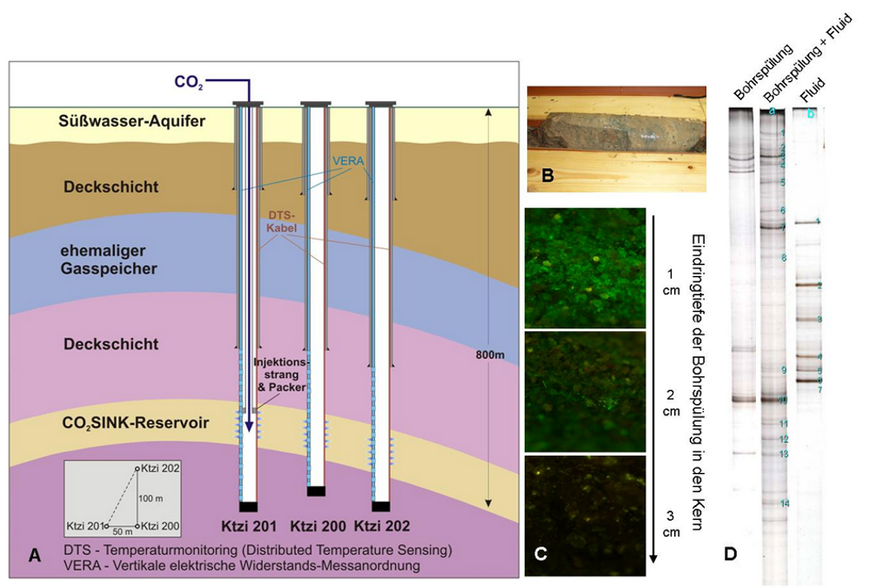Investigations concerning possibilities to reduce CO2 emissions in the atmosphere are receiving a great attention as driven by the global warming effects of the carbon dioxide gas. One possibility to reduce the volume of CO2 emitted into the atmosphere from industrial processes is the CO2 capture and geological storage in the deep underground. Basic principles of the storage technique with special emphasis on process monitoring and modelling are explored by injecting CO2 into a saline aquifer near Ketzin, west of Berlin , Germany , in the frame of the EC project CO2SINK. Within the GRASP project, sponsored by the European Commission as well, our working group aims to investigate the microbial aspect of the underground CO2 storage. The main emphasis is placed on the characterisation of the underground processes, including physico-chemical reactions as well as microbial reactions between gas (either dissolved in water or in the supercritical state), fluid, and the mineral content of the reservoir rock and the cap rock. In order to investigate processes in the deep biosphere that will occur between injected CO2, the rock substrate and the microorganisms, the PCR SSCP method (PCR–Single-Strand-Conformation Polymorphism-Based Genetic Profiles of Small-Subunit rRNA Genes) is used. These studies aim at localising and identifying microbes within mineralized environments, identifying microbial life-markers (phospholipids), unravelling the origin and fate of dissolved organic matter (potential substrates and metabolites of microorganisms), and characterising life in extreme habitats and their influence on creation and dissolution of minerals.


